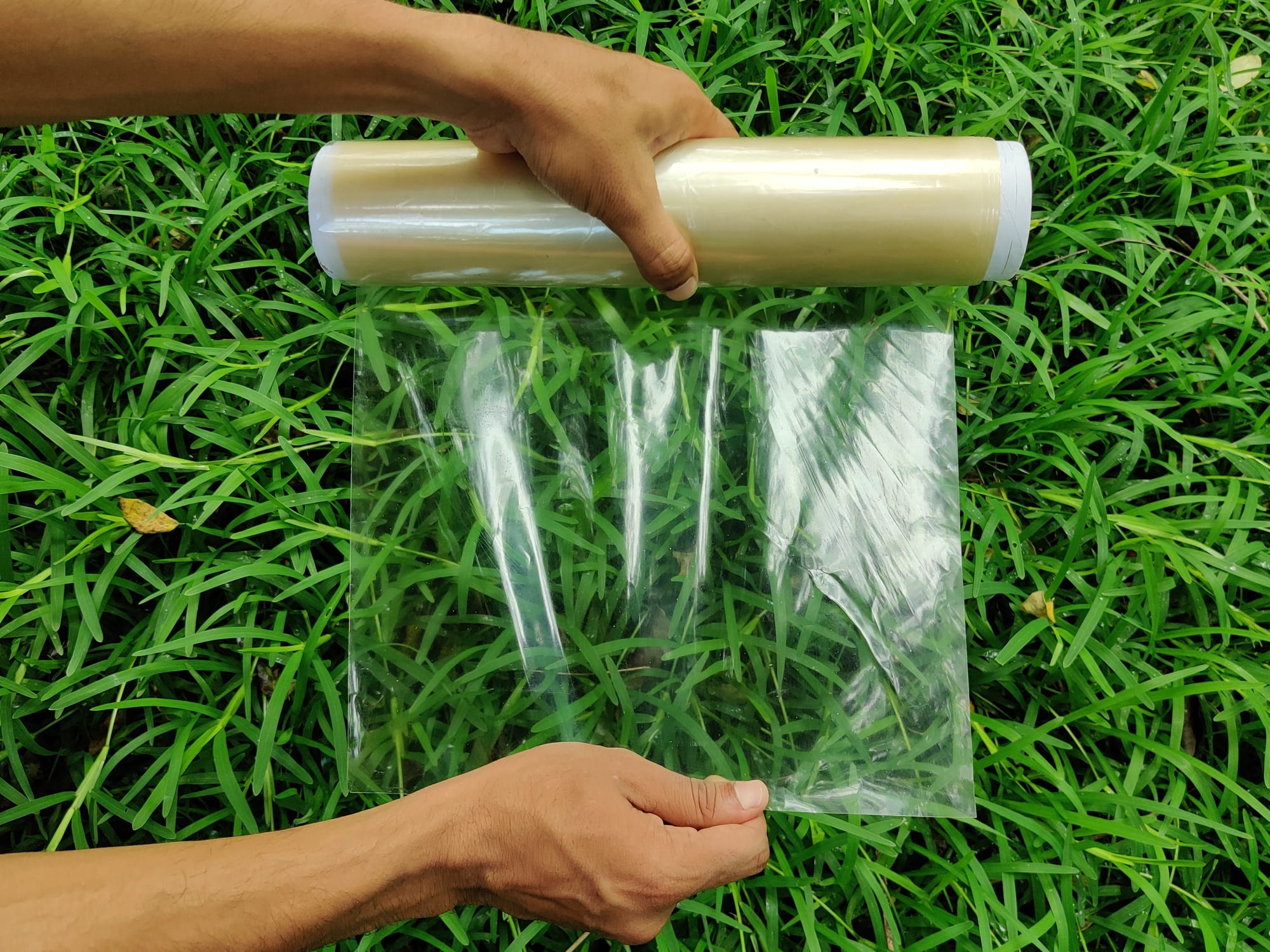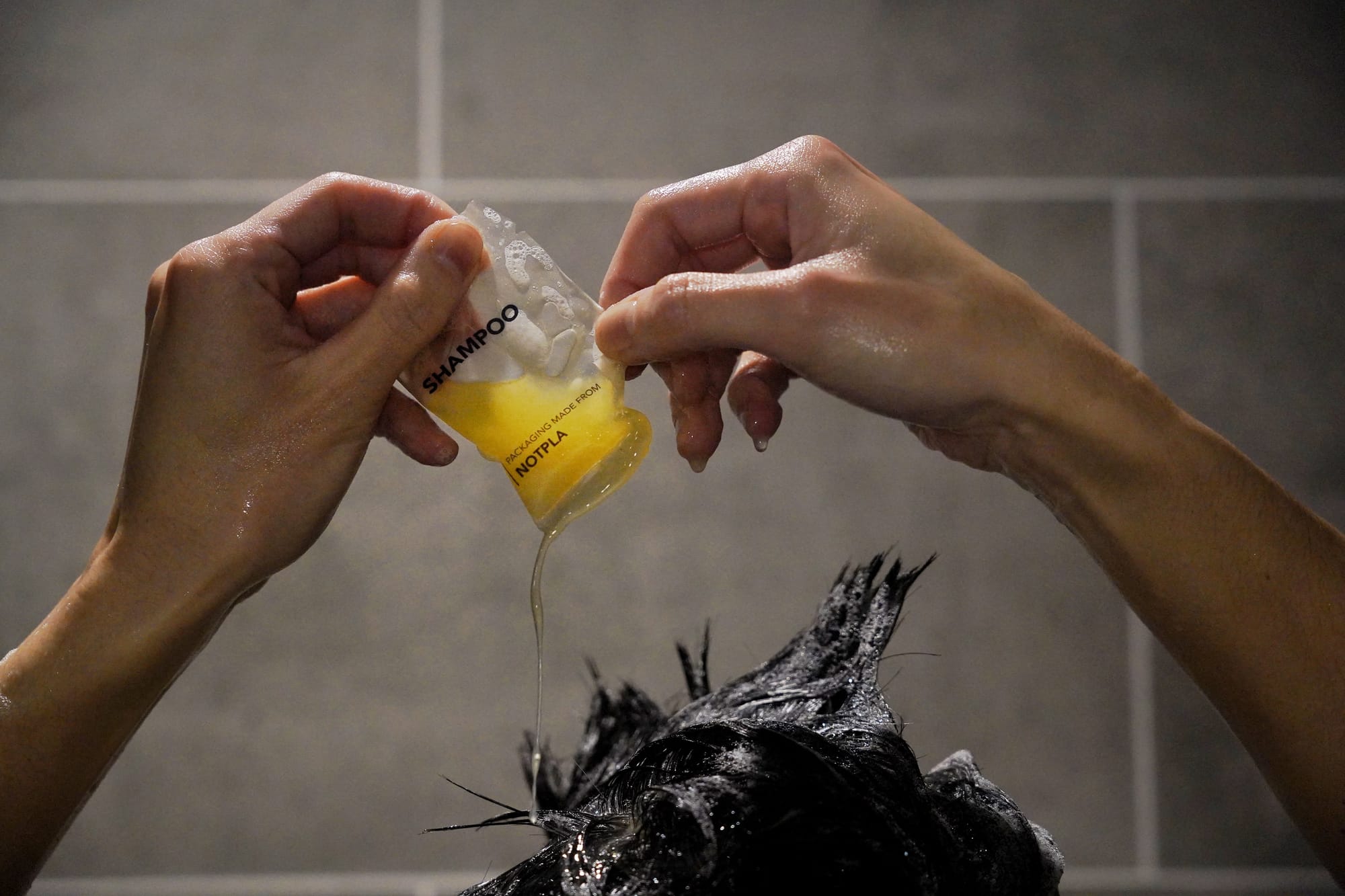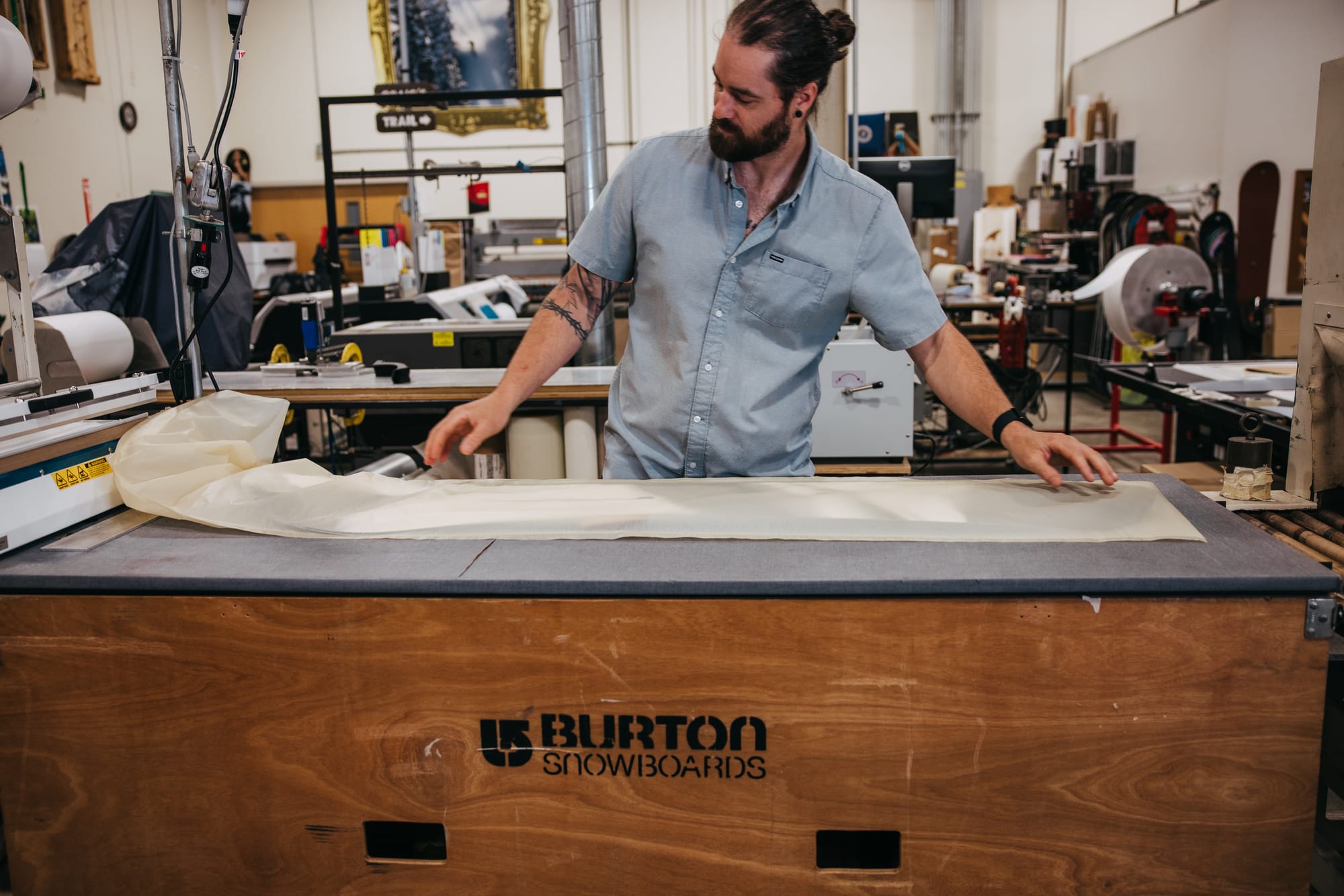Inside Lonely Whale's Efforts to Scale Thin-Film Plastic Alternatives
Lonely Whale is helping to scale seaweed-based packaging that can help brands meet sustainability goals.

The well-documented environmental impact of traditional plastics — e.g., carbon emissions stemming from the fossil fuels used to create the material, and ocean pollution caused by plastic waste — has prompted consumers and businesses alike to rethink their relationship with plastic.
But as nice as it would be to simply switch from virgin to recycled plastic, or to use other materials instead, the ubiquitousness of plastic makes it hard to replace overnight.
However, Lonely Whale, a nonprofit co-founded in 2015 by Entourage star Adrian Grenier, is on a mission to stop plastic waste from entering the ocean, and part of its work has recently revolved around finding alternative materials to thin-film plastics.
Thin-film plastics include things like resealable storage bags and the wrapping used for packaging/transporting clothes and other consumer products. Addressing these types of plastics is critical, considering that flexible monomaterials — which includes things like plastic bags, films and wraps — account for 46% of the plastic that leaks into the ocean, according to a report from The Pew Charitable Trusts partnered and SYSTEMIQ.
"Plastics are, no doubt about it, a magic material. They do a whole host of things amazingly well, but unfortunately, they stick around too long," says Tim Silman, program director of Unwrap the Future at Lonely Whale. And on top of environmental concerns, there's also concerns like the potential adverse health impacts of microplastics, he adds.
So, Lonely Whale, via the Unwrap the Future program, partnered with the brand Tom Ford in 2020 to launch the Tom Ford Plastic Innovation Accelerator, which included a $1.2 million prize pool in cash and direct investment from sponsors, in order to help scale more sustainable solutions to thin-film plastics.
"The challenge was there was not really a market-ready solution, nor a lot of awareness about this problem. So that was sort of the genesis of the Unwrap program, and particularly the strategy about using a prize to try to address it," explains Silman.
The contest involved a diverse mix of judges such as activists, fashion leaders, and finance executives, along with a scientific and technical advisory board that assessed environmental standards and the market viability of the proposed plastic alternatives.
Plus, the proposed solutions went through rigorous field testing in the Caribbean, sponsored by Nike, among other analyses to determine how alternative materials performed.
In 2023, the accelerator announced the three grand prize winners, all of whom use seaweed-based alternatives to plastic: Sway finished in first, followed by Zerocircle, and Notpla.

"A core element of the prize was that it was solution-agnostic. We had companies using food waste, agricultural waste, pea protein, seaweed," etc., says Silman. "We just happened to end up with a strong cohort of seaweed companies."
But the accelerator's work didn't end with selecting prize winners. It continues in an effort to scale these solutions, such as with Lonely Whale co-hosting a salon with the prize winners in New York in June as part of celebrating World Oceans Week and International Seaweed Day. At the salon, prize winners noted that 19 brands have committed to trials of their thin-film plastic alternatives.
Specifically, more than half of these 19 companies, which comprise Lonely Whale’s Early Adopters Coalition, have already started a trial with one or more of the prize winners.
Some examples include how clothing brand J.Crew and furniture brand MillerKnoll have started supply chain trials with Sway; snowboard brand Burton started supply chain trials with Sway and Zerocircle; and Notpla has started a distribution partnership with Imperial Dade, which distributes a wide range of products such as food service packaging and commercial cleaning supplies.
Making the Switch to More Sustainable Materials
In many ways, the seaweed-based alternatives from the prize winners perform similarly to plastic while having environmental advantages like being fully biodegradable, but making the switch to these new materials isn't something that can be done instantly for most brands.
When it comes to plastic, "a lot of supply chains are optimized for this ubiquitous, low-cost material that's basically like magic," although the externalities are not all priced in, says Silman.
At a macro-level, the seaweed-based film is a drop-in replacement for the fossil fuel-based plastic film, he explains, but there are more nuanced considerations that companies need to look at, based on their specific supply chains. For example, some of these seaweed-based solutions are designed to dissolve in water. "So it's going to not perform as well in a high-moisture environment," says Silman.
Thus, working with the early adopter brands involved steps like looking at their production and distribution sites to determine what it would mean if the material needs to withstand sitting on a container ship for a few months, for example, while some other brands with more diffuse supply chains might be better equipped to make the switch sooner, he explains.
Plus, the more sustainable packaging generally costs more than traditional plastic when not counting the externalities, considering that plastics have over a 100-year head start, says Silman.
Ideally, though, as these materials move from the testing phase to more widespread adoption, costs will come down. For now, though, early adopter brands need to weigh these costs against the potential benefits of reducing plastic waste.
"Every brand has a little bit of a different analysis to do, triangulating between how much of the cost can you absorb, what's the timeline you're looking to make the switch and what are the solutions you're looking for — which is based in part on your external goals, like your public ESG commitments, or your internal commitments — and then what does your supply chain look like," says Silman.
Connecting With Customers
While some brands simply want to make the switch away from plastic for altruistic reasons, there can be business benefits to doing so. However, packaging a t-shirt in a seaweed-based film, for example, is unlikely to move the needle in and of itself. Instead, switching from plastic to seaweed-based or other more eco-friendly materials is more about lifting brand perception and consumer trust.
"Packaging in general is really tricky, because it is a component but not an attribute of the product itself," says Silman. "So it's difficult to get consumers to make decisions on what to buy based on what the packaging is."
Instead, using more sustainable packaging is more of a brand equity play, adds Silman. "You might expect a really sustainable brand to have really sustainable packaging, so it's about making sure there's not a disconnect there."
Still, brands are being careful with their positioning, in part because the R&D needed for a big company to make the switch to one of these more sustainable solutions at scale can take a year or so.
"And most big brands don't really want to talk about this kind of internal work externally, I think for good reasons. One, they want to feel like they're really walking the walk, and if they say they're doing something, they want to make sure that it's at scale, not just a testing" phase, says Silman.
"But I think that there's ways to speak about it authentically. One of our key takeaways was if brands really have a track record of authenticity around environmental issues, they can engage their customers in the journey," he adds.
"Because I think we know that this sustainability transition is not an end result. Even if you switch and eliminate thin film in a huge brand, then there'd just be another sustainability issue to tackle. You're just going down a materiality list of what you need to address."
One brand that has been more public about its sustainability transition and work with Lonely Whale is Burton. One of the company's 2025 sustainability goals is to have 100% plastic-free retail packaging, and while the company is getting close to that goal, some areas are harder to change than others.
For example, in packaging its snowboards for retailers, Burton uses plastic shrink wrap to protect the boards, along with a paper-based liner. So, Burton has been undergoing tests with Sway and Zerocircle for a seaweed-based solution that could potentially replace both the plastic and paper packaging.

"A component of how we approach figuring out who is a good fit for collaborating on particular issues is looking at if it aligns with an existing, public ESG commitment. So for Burton, this does, in terms of their work to displace fossil fuel-based plastics," says Silman.
While it remains a work in progress, shining a light on the transition seems to fit with the narrative Burton has been building internally and externally.
"They have a really active packaging and sustainability team, and they were featured on one of our event panels [in June], they're featured in our impact report that's forthcoming, and in press around this, and we're increasingly working with them to figure out how we communicate [their work] in an authentic way with their audience," says Silman.
Another approach has been to display new packaging as part of a capsule collection, which is a more curated fashion line.
"Because it's a capsule, it's more of an event-driven opportunity. It's more of a discreet sort of moment, but that creates momentum internally to make this transition," says Silman.
What's Next?
Going forward, Lonely Whale plans to support companies moving from testing to adoption of thin-film plastic alternatives. A key component of that includes finding ways to support sustainable seaweed production.
"There's a lot of interest in seaweed as a feedstock, as a carbon sequestration device, as a regenerative aquaculture opportunity. But that creates its own challenges," says Silman.For example, around 98% of farmed seaweed comes from seven countries in Asia, according to Hatch Innovation Services.
"That's not a very robust system and supply chain. There's a lot of weak points, given that centralization. So, one of the things we've been doing, in addition to thinking about brand demand, is the expansion of supply," to help bring down costs and reduce the risks of overly concentrated production, says Silman.
The third phase of Lonely Whale's Unwrap program, following the first two which included the prize and the accelerator's support of market adoption, is to raise awareness of the program overall and seaweed in particular, explains Silman, such as with a soon-to-be-released short documentary about seaweed.
"We're trying to create a more sustainable growth trajectory. The last thing we want to do for seaweed is replicate the failures of traditional agriculture. Because you could, in theory, expand seaweed supply by just straight monoculture and a lot of negative cultivation practices, but there's a lot of really interesting non-profits and other people working on how to make a more holistic, sustainable system for growth," says Silman.
Past that, Lonely Whale plans to continue supporting other applications of the prize winners' solutions, beyond thin-film, such as for replacing rigid plastics. And the non-profit could potentially expand into addressing other areas like plastic microfibers, given how the organization has been working with fashion and apparel brands recently.
These plans exemplify how tackling all areas of sustainability right away is impractical, whether looking at a non-profit or a consumer-focused brand. Instead, moving toward more sustainable solutions is an ongoing process, and opening up to stakeholders about the journey could help build engagement.
Disclosure: Carbon Neutral Copy's parent company, JournoContent LLC, has clients involved in sustainability-related areas, among others. The owner of Carbon Neutral Copy, Jacob (Jake) Safane, has investments in sustainability-related companies, among others.
As such, conflicts of interest related to these and other investments/business relationships, even if unintended, may exist at times. Please email info@carbonneutralcopy.com if you'd like further clarification on any issues.
